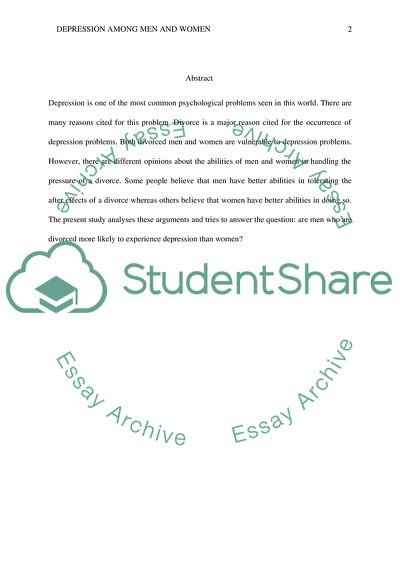Cite this document
(Are Men Who Are Divorced More Likely to Experience Depression Than Women Research Paper Example | Topics and Well Written Essays - 3500 words, n.d.)
Are Men Who Are Divorced More Likely to Experience Depression Than Women Research Paper Example | Topics and Well Written Essays - 3500 words. https://studentshare.org/psychology/1858900-are-men-who-are-divorced-more-likely-to-experience-depression-than-women
Are Men Who Are Divorced More Likely to Experience Depression Than Women Research Paper Example | Topics and Well Written Essays - 3500 words. https://studentshare.org/psychology/1858900-are-men-who-are-divorced-more-likely-to-experience-depression-than-women
(Are Men Who Are Divorced More Likely to Experience Depression Than Women Research Paper Example | Topics and Well Written Essays - 3500 Words)
Are Men Who Are Divorced More Likely to Experience Depression Than Women Research Paper Example | Topics and Well Written Essays - 3500 Words. https://studentshare.org/psychology/1858900-are-men-who-are-divorced-more-likely-to-experience-depression-than-women.
Are Men Who Are Divorced More Likely to Experience Depression Than Women Research Paper Example | Topics and Well Written Essays - 3500 Words. https://studentshare.org/psychology/1858900-are-men-who-are-divorced-more-likely-to-experience-depression-than-women.
“Are Men Who Are Divorced More Likely to Experience Depression Than Women Research Paper Example | Topics and Well Written Essays - 3500 Words”. https://studentshare.org/psychology/1858900-are-men-who-are-divorced-more-likely-to-experience-depression-than-women.


